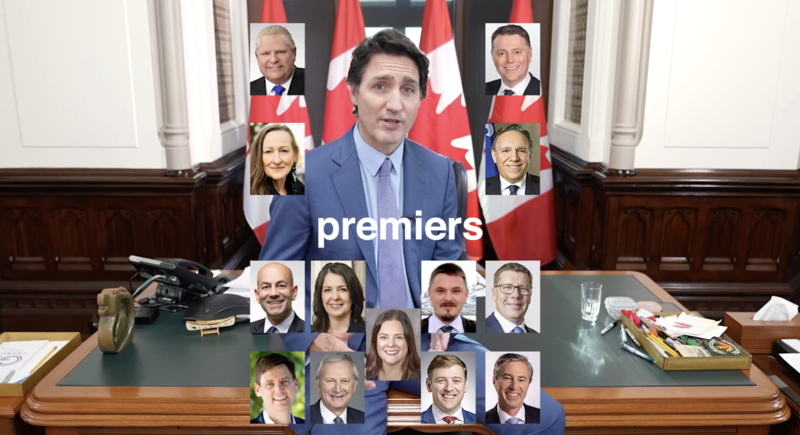Healthcare. It’s the word on every premiers’ lips. And yesterday, they finally got to talk to the Prime Minister about it.
What happened: Justin Trudeau offered premiers $46.2 billion in new healthcare funding over the next decade (totalling $196.1 billion in funding total) in exchange for better health data collection, data sharing, and reporting on how they spend the money they receive.
The influx of new money will come primarily through two channels:
-
A $2 billion top-up to the Canada Health Transfer (CHT), the largest major federal transfer to provinces, including a 5% annual hike to the CHT over the next five years.
- $25 billion that will be set aside to work out individual bilateral deals with provinces and territories to focus on region-specific healthcare issues.
The provinces had previously been adamant that they wouldn’t accept new funding with strings attached, which the CHT top-up certainly has. But now that a deal is on the table, some provinces (like Ontario and BC) could be more likely to budge.
Why it matters: Canada’s in a healthcare crisis. Despite having the fourth-highest per capita healthcare spending in the OECD, people can’t get family doctors, there are years-long surgery backlogs, and emergency rooms are routinely overwhelmed.
- A report ranking the healthcare systems of 11 developed nations put Canada second last, ahead of only the US.
The deal attempts to bring more accountability to the nation’s healthcare system. Canada has no national database for over 100 health authorities and has been “historically poor” at sharing medical data, including everything from wait times to staffing shortages.
Zoom out: More Canadians agree with this line of thought. An Ipsos survey found 86% of Canadians believe provincial healthcare needs more federal funding, but the majority also agreed that the provinces need to show the feds a clear plan on how they will spend it.
